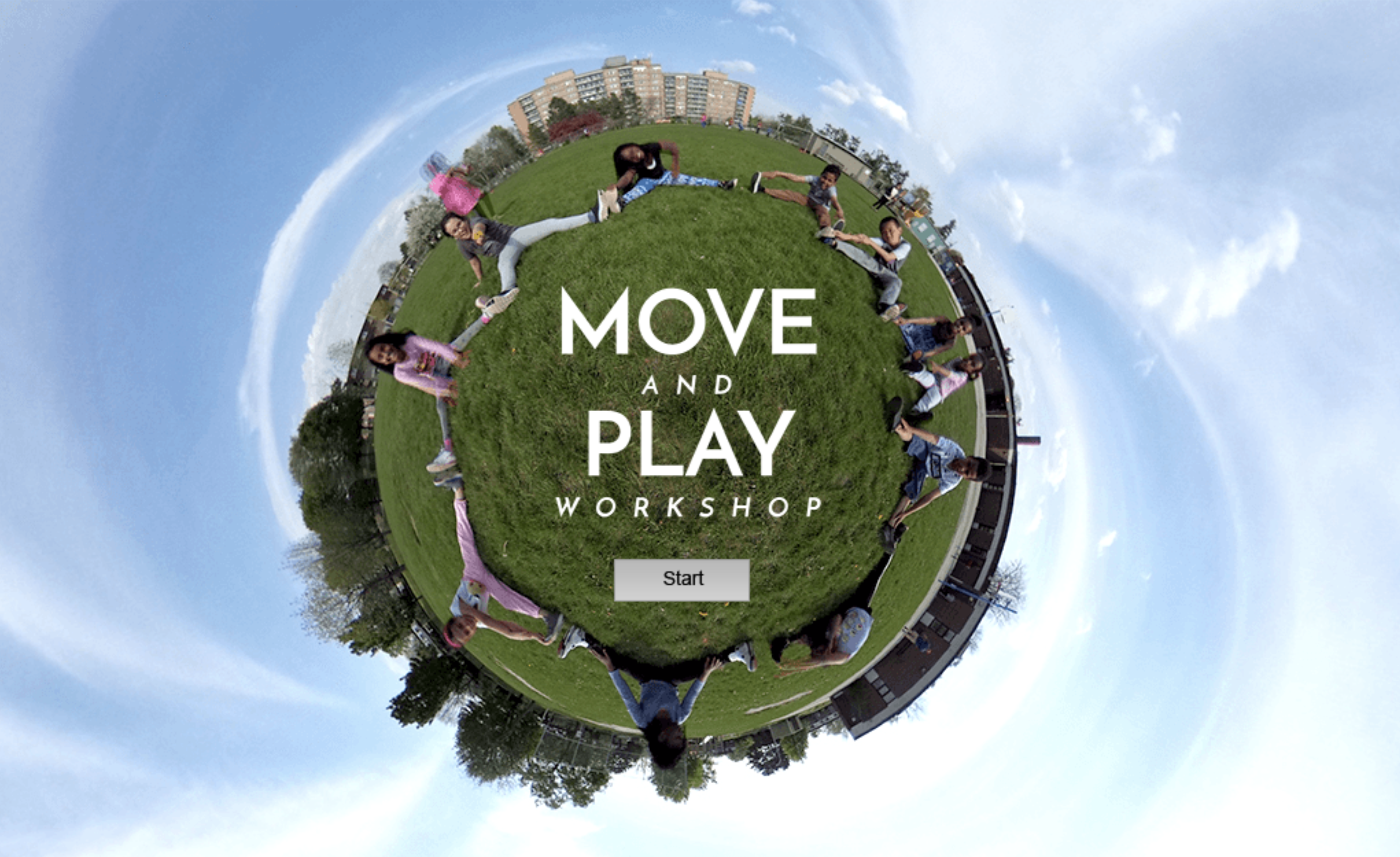Transitioning to adulthood is a process requiring advanced planning and preparation. Some of the services and supports a child under 18 has will come to an end and new adult services may begin. Parents may need to develop new expectations, activities, supports and services for a growing adult. The person with ASD will need support to identify their interests, strengths and their next steps.
Questions for the person with Autism:
- What do I want to do after high school?
- What am I great at?
- Where will I live?
- Successful transitions require early planning and practice, practice, practice!
Looking Ahead… Together: A transition planning tool for young adults with autism spectrum disorder
Grade 8 and Planning for Grade 9

Entering high school can feel like entering a whole new country. Knowing the language is important so you can make informed choices.
The choices can feel complicated. The more students and their families are part of making choices about school the more control a student has over their destination.
Things to think about before you get to Grade 9:
Questions for the person with Autism:
High school programs: What are my choices?
-
What does a high school offer? Understand what choice of programs high schools offer. Some programs to ask about: Special Education Programs, Students with intellectual disabilities, Self-directed Learning, Gifted and Resource Programs.
Will I earn a diploma, what are my choices?
When making Grade 9 course selections, be sure you understand the number and type of credits required to graduate.
How will the courses a student chooses in high school affect their choices for life after high school?
Be familiar with and ask your school questions about these terms:
- Certificate of Accomplishment (COA): The Certificate of Accomplishment is granted to students who do not fulfill the requirements of the OSSD or OSSC. It recognizes a student’s participation in a secondary school program. Students are enrolled in K courses (non-credit).
- Ontario Secondary School Diploma (OSSD): The Ontario Secondary School Diploma is granted after fulfilling all necessary credit, literacy and community hour requirements.
Transition to High School, a guide to help prepare your child for high school
The Summer Before Grade 9
Attend the Getting Ready for High School Orientation Day.
Keep a look out for the orientation days which high schools hold in August and the first week of September. These days are designed to help students prepare for high school. Some communities have more intensive high school preparation groups or workshops. Ask your local community agency or school staff.
Make sure travel arrangements to and from school are organized.
Become familiar with and PRACTICE high school routines and timetables.
The school will provide information regarding start/end times and basic routines. Most schools allow about 5 minutes to get to your next class. Lunch periods will be included in your timetable. Use the summer to get familiar with new routines and lunch time.
Other related content on ConnectABILITY
In Grades 9s and 10

During your son/daughter’s grade 10 year, they will be asked to choose a course “destination” or” pathway”. This choice is made knowing their interests for future work, their current performance in high school courses and their current stream.
University Preparation Courses
- Designed to prepare students with the skills and knowledge necessary to meet the entrance requirements needed for university programs.
- Courses are based on the theory of the subject matter, with the inclusion of some hands-on application.
College Preparation Courses
- Designed to prepare students with the skills and knowledge necessary to meet entrance requirements for college and some apprenticeship programs.
- Courses are based on concrete applications or subject matter with a focus on the development of critical thinking and problem-solving skills
Workplace Preparation Courses
-
- Designed to prepare students with the skills and knowledge necessary for direct entry into the workplace, for admission to apprenticeship programs and other training programs offered in the community.
Promote the importance of life-long learning.
Community Participation Courses
- Designed to prepare students for transition to community participation.
- Promote meaningful social inclusion in the community.
Annual Transition Planning Meetings
- Did you know you are entitled to Annual Transition Planning Meetings each year of high school with the high school?Q.
-
What is a High School Transition Planning Meeting?
A.
Transition Planning Meetings can begin in grade 9 and be held at least once a year through to graduation. The purpose of the meetings is to plan for life after high school.
- Parents have the right to invite outside community agencies to assist in the planning for transitioning out of high school.
- Some sample goals that may come from a student’s Transitioning Planning meeting may include: Complete volunteer hours, Link with employment agencies for summer employment, increase opportunities to gain independence (cooking, public transit)
- Keep the lines of communication open! Ask your child how he/she is adjusting to high school. Remind him/ her that there are many caring adults that are available to help: Guidance Counsellors, Teachers, Child and Youth Workers, Administrators, Chaplains, Coaches, Educational Assistants, Student Success Teachers. Get connected with a Social Service Agency in your community.
The teenage student’s social life
Things to think about for the high school teen?
- How are they coping at lunch time? Are there other places to eat lunch?
- Are they using social media in a safe way?
- Do they know where to go for help in the school?
- Do they need support making friends? Many high schools have Peer Support Programs?
- Are there school clubs that your student would enjoy?
- Do they need help to prepare for the high school dance?
- Are they hearing the morning announcements ?
- Are they ready for a girlfriend or boyfriend?
Other related content on ConnectABILITY
At Age 16

If you have not already started, this is the age to get students connected to part time work, social and recreation options. People with ASD need PRACTICE, PRACTICE, PRACTICE in their social lives and their work lives.
The connections they make between 16-18 may be a stepping stone to adult relationships, recreation and work after age 18.
- Apply to the DSO
- Making the most of your school time (Social groups etc.)
- Friends and relationships
- Develop Community skills
Apply to Developmental Services Ontario (DSO)
The Ontario Government has adult supports and services.
At age 16 apply for adult support and services with your local Developmental Service Ontario office https://www.dsontario.ca/
Get social!
Encourage your child to get involved. Students should listen to announcements that advertise try-outs for teams or meetings for clubs. Getting involved will allow students to make new friends and feel a part of the school community. This is a trouble zone for many people with ASD. The social world can be tricky. Have a plan for finding out about school events and clubs in more than one way.
Is your child staying healthy? Are immunizations up to date? When was his/her last medical check-up? Is he/ she physically active, eating nutritious meals, getting enough sleep? Being well physically will certainly help students reach their academic potential and social potential.
Check here for ASD friendly events in your area!
Tools for Planning Ahead
There a variety of online planning tools to help families as children become teenagers and then adults.
Autism Parent Resource Kit
This kit has sections on Common Transitions, Family Transitions and Educational Transitions
http://www.children.gov.on.ca/htdocs/English/specialneeds/autism/aprk/index.aspx
The KIT: Keeping it Together is an organizational tool. It is a way to organize information for your child, and to assist you when interacting with different service systems, for example health, education, and recreation. It is useful for parents of children from birth to 21 years.
The KIT is made for youth with ASD to keep track of important information as they transition to adulthood. https://www.canchild.ca/system/tenon/assets/attachments/000/000/721/original/Youth_Kit_Online.pdf
Sub: Developing Skills for Adult Life
People with ASD need opportunities to practice many things. Think of the high school years as practice years for adulthood. Here are some independent living skills teens in Grades 9 through 11 may want to practice: Cooking/Laundry/Financial Literacy/Travel training etc.
Click on these links for more Developing Skills for Adult Life resources:
18+ yrs old

Getting ready for life after high school
Did you know that in Ontario a student can be in school until you are 21, but your rights change at 18.
Life after highschool:
After finishing high school there are different pathways you can choose: post–secondary education, community participation, apprenticeships (leading to employment) or employment. You could also combine some of these pathways to have varied daily experiences.
The transition from school to work, further education, and community living can be particularly challenging for many exceptional students. A successful transition is significantly increased when:
- schools work with parents, employers, community agencies and providers of further education to develop coordinated plans and community networks
- it is planned early
- there are short term and long term goals set each year of high school. These goals relate to community networks, identifying necessary life skills for community living, workplace experiences
Post-secondary education
There are a number of options to continue your formal education after high school. These include full-time programs, part-time programs and adult continuing education courses often provided by your local school boards and colleges.
University/College
University
Universities provide degree programs that are theoretical in nature and these programs vary for each university. Most undergraduate programs range in cost from 6,000 dollars to 10,000 dollars per year. Books are extra. If the individual chooses to live away from home the cost increase.
WHO is university for?
- Your son/daughter enjoys abstract concepts associated with course material and academic/ theoretical learning.
- Your son/daughter can complete much of their own work independently.
How can you prepare for university?
- Your son/daughter must be enrolled primarily in Academic courses in Grades 9 & 10 and University “U” or University/College “M” courses in Grades 11 & 12.
College
College programs provide an effective combination of real-life skills with quality education. Pursuing college studies is more economically feasible, approximately $3000 to $5000 per year.
WHO is college for?
- Your son/daughter finds success in practical applied curriculum.
- Your son/daughter enjoys smaller classes and a personal approach to instruction.
Inclusive Education Programs at Ontario Colleges
The idea of attending college can be intimidating when you have autism. Inclusive Education programs (also known as Community Integration through Co-operative Education programs ) at Ontario colleges give you the opportunity to experience college life and pursue postsecondary education, with courses tailored to meet your individual needs. You will learn the skills you need to be independent in your community and find employment in your chosen field.
Post-Secondary Education Supports
- Autism Ontario’s free Education Portal is a one-stop shop for helpful autism-related resources. Once you register, you will have access to all past webinars, helpful articles, and information about Autism Spectrum Disorder to assist you on your journey from diagnosis through to adulthood. https://www.autismontario.com
- There is often post-secondary financial assistance available for those who require it. Check the Canadian government website or your local provincial website (i.e. Ontario Student Assistance Program).
Other Post-Secondary Resources
Community Participation/ Day Programs
This includes things like enjoying social, fun or spiritual activities; developing self-help skills; continuing to learn after high school: taking a course, volunteering, using public libraries or participating in activities at a community centre; volunteering or preparing for a job.
These opportunities may be available through the Community Agencies with which students are affiliated. All of the agencies are included in the DSO (Developmental Services Ontario – http://www.dsontario.ca/ )
Ontario Passport Funding
Passport is a program that helps adults 18 years or older with a developmental disability to participate in their communities.
For more Community Participation Supports Resources
Apprenticeship
An apprenticeship is a practical method of learning specific work skills that combines a variety of destinations, especially work and college. There are over 150 skilled trades in Ontario that can be classified into four sectors: Construction, Industrial, Motive Power and Service. For a complete list of trades, check out: www.edu.gov.on.ca/eng/tcu or www.oyaptcdsb.com
Employment
Students who are considering going to work immediately following secondary school may decide to do so after achieving an Ontario Secondary School Diploma (OSSD) or an Ontario Secondary School Certificate (OSSC). Students who are interested in this pathway are encouraged to take part in co-operative education programs in grades 11 and/or 12. They are also encouraged to consider the Specialized High Skills Major (SHSM) program that may be offered at their school. In consultation with the Guidance Counsellor and Co-op Teacher, students can plan their pathway to work. Participation in the local Job Fairs in which students have the opportunity to meet employers and to develop job search skills is of great benefit to students who are looking for employment. This is a excellent place to register with their local employment agency.
Many people with ASD with all different abilities can work and earn their own income.
Here’s how:
- Use your special interests and strengths to help you choose your job.
- Consider asking for help to find work and keep work
Employment resources
Employment: Resources, tools supporting successful employment and the business case for hiring a person with a disability http://connectability.ca/2016/07/05/employment/
Transitioning to Employment. This article tells us students with ASD need more help in the following areas related to employment: Social interactions with colleagues, organizational skills and sensory challenges, understanding different roles/careers , interviewing, managing anxiety, reading social cues, self-advocating , mental health and gives ideas for how schools can support employment. Transition to employment
Ontario Job Opportunity Information Network (JOIN)
Ontario Job Opportunity Information Network (JOIN) offers a single point of access for job seekers, employers, and service providers. We work to match skilled candidates with specific employment positions being offered by our partners, or help refer them to service providers who will meet their needs. As well, we provide educational strategies and supports for employers to provide full inclusion and expertise on disability in the workplace. So whether you are a job seeker, employer or service provider, you have come to the right place – we can’t wait to work with you! http://joininfo.ca/
Ontario Disability Employment Network (ODEN)
The Ontario Disability Employment Network is a professional body of employment service providers united to increase employment opportunities for people who have a disability. http://odenetwork.com/


